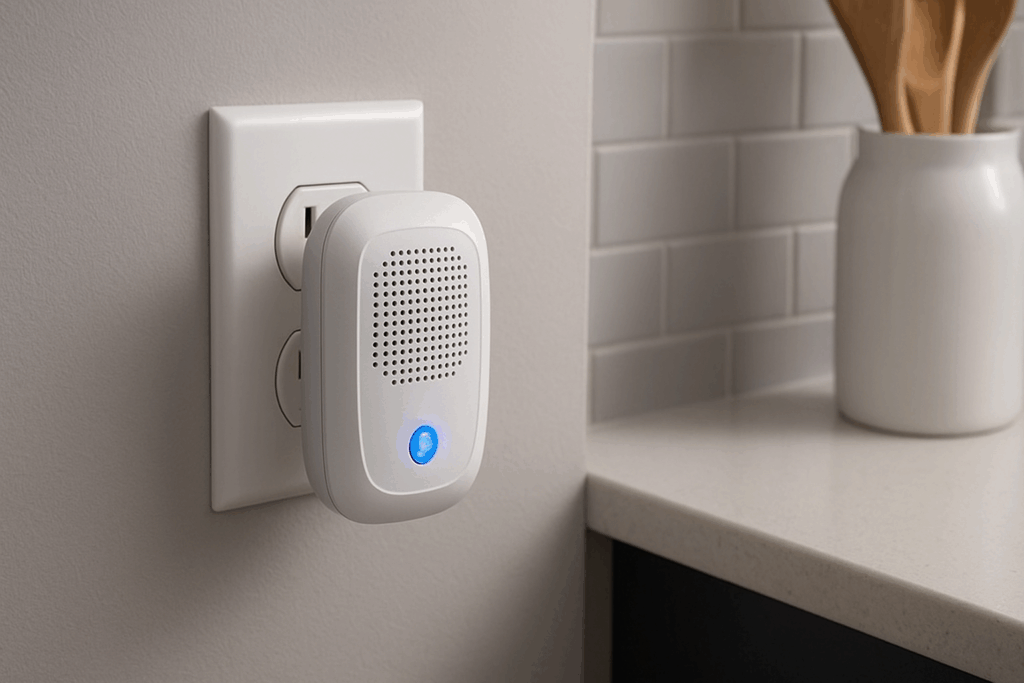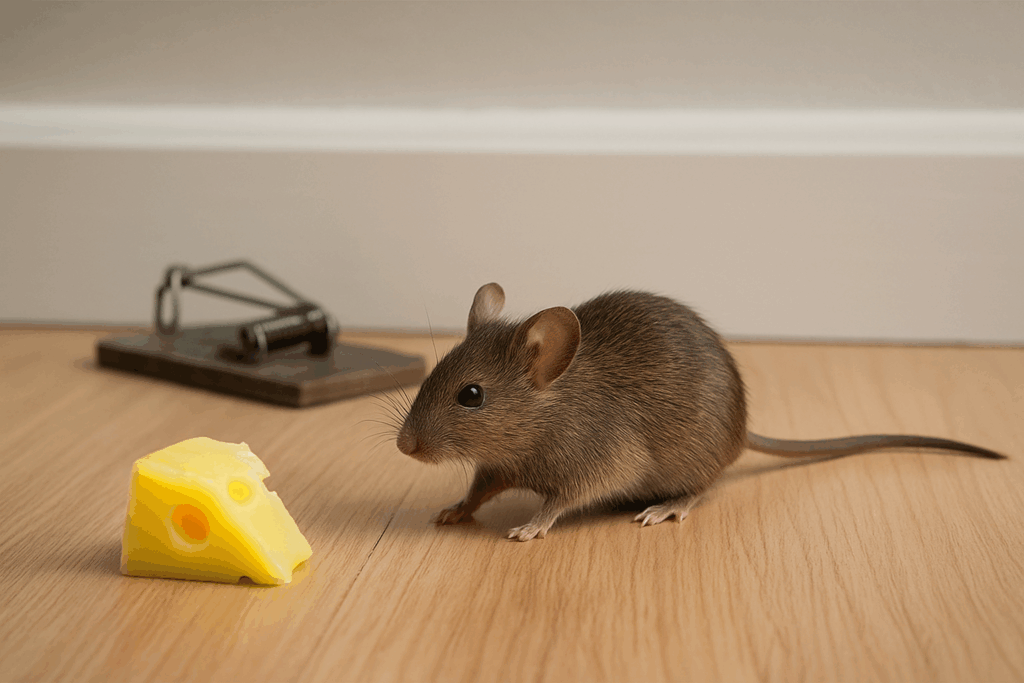Rodents are not just unwelcome visitors — they’re persistent invaders that can damage property, contaminate food, and spread disease. Traditional methods often rely on harsh chemicals, but many homeowners today are seeking natural Rodent Control solutions that are safe for their families, pets, and the environment.
Whether you’re tired of the endless scratching sounds in your walls or the constant need to reset traps, it’s time to consider smarter, eco-friendly options. In this guide, we’ll explore nine proven natural methods for Rodent Control that blend science, practicality, and sustainability. These approaches not only remove existing pests but also help prevent future infestations — all without toxic fumes or harmful residues.
Let’s dive into the world of natural Rodent Control and discover how simple household changes and natural repellents can make your home rodent-free for good.
1. Seal Every Entry Point — The First Step in Rodent Control
Rodents can squeeze through openings as small as a coin. Before you use any repellents or traps, start by identifying and sealing all potential entry points. Check for gaps around pipes, vents, windows, and doors. Use steel wool, caulk, or metal mesh — materials rodents can’t chew through.
A key part of natural Rodent Control is creating a barrier that makes entry impossible. Avoid foam sealants, as rodents can gnaw through them easily. Instead, pair durable materials with weatherproof sealants for long-lasting protection.
This step might seem basic, but sealing entry points can reduce infestations by over 80%. It’s your first and most powerful defense against rodents.
2. Peppermint Oil — Nature’s Fragrant Rodent Repellent
One of the most popular natural Rodent Control tricks is using peppermint oil. Its strong scent irritates rodents’ sensitive noses, discouraging them from entering your home.
To use it effectively:
- Mix 10 drops of peppermint essential oil with 1 cup of water in a spray bottle.
- Spray around doors, windows, cabinets, and other rodent-prone areas.
- Refresh every few days to maintain potency.
You can also soak cotton balls in peppermint oil and place them near known entry points. Besides deterring rodents, peppermint leaves your home smelling fresh — a double win for natural home lovers.
3. Ultrasonic Devices — Modern Tech Meets Natural Rodent Control
If you prefer a more hands-off solution, ultrasonic repellents are a great choice. These plug-in devices emit high-frequency sounds that are inaudible to humans but unbearable to rodents.
Unlike traps or poisons, ultrasonic devices align with natural Rodent Control principles because they don’t kill or harm animals — they simply drive them away. Place them in quiet corners or near kitchens and basements where rodents are most active.
For best results, ensure the devices have a clear line of sight, as the sound waves can’t pass through walls or furniture.

4. Use Natural Predators — The Eco-Friendly Rodent Control Strategy
Mother Nature already has her own pest control system. Owls, snakes, and cats are natural rodent hunters. If you live in a suburban or rural area, encouraging natural predators can dramatically lower rodent activity.
For example, installing owl boxes can attract these silent hunters to your property. A single owl can eat up to 12 rodents in one night!
If you’re not comfortable with wild predators, even adopting a cat can help. Many homeowners have found feline companions to be effective partners in Rodent Control — especially in garages, basements, and gardens.
5. Steel Traps and Humane Catch-and-Release Methods
For homeowners who prefer a more direct approach, traditional snap traps or humane traps can be part of your natural Rodent Control routine.
Humane traps capture rodents alive, allowing you to release them far from your home. When setting traps, use bait like peanut butter, oats, or nuts — rodents can’t resist these natural treats.
Always check traps daily and clean them after each use to maintain hygiene. While this method requires more effort, it’s eco-friendly and effective when paired with prevention techniques.
6. Natural Scents That Repel Rodents — Beyond Peppermint
While peppermint is the star of the show, several other natural scents can play a powerful role in Rodent Control:
- Eucalyptus Oil: Works similarly to peppermint, with a strong scent rodents dislike.
- Clove Oil: Acts as a natural deterrent due to its sharp, spicy fragrance.
- Ammonia or Vinegar: These mimic predator urine scent, making rodents stay away.
You can mix these oils or alternate them weekly to prevent rodents from adapting. Placing scent-soaked cotton balls in corners, behind furniture, or under sinks can keep your space pest-free naturally.
7. Keep Food Storage Clean and Airtight
Rodents thrive where there’s easy access to food. Maintaining cleanliness and proper storage is one of the smartest long-term Rodent Control tactics.
Store dry goods like grains, cereals, and snacks in airtight containers made of metal or thick plastic. Avoid leaving pet food or crumbs on the counter overnight.
Wipe surfaces regularly, vacuum crumbs, and empty garbage bins daily. Rodents are resourceful — if they don’t find food, they’ll move on. A clean kitchen is one of the most effective deterrents in your natural Rodent Control plan.
8. Maintain a Clutter-Free Space
Clutter provides hiding spots and nesting materials for rodents. Basements, attics, and garages are prime targets because they often go unchecked for weeks or months.
Declutter these spaces regularly. Store items in sealed plastic bins instead of cardboard boxes (which rodents love to chew). Also, keep outdoor areas tidy — trim overgrown plants, clean up woodpiles, and keep garbage bins sealed.
A clean, organized space reduces the chance of rodents finding safe shelter. As part of your holistic Rodent Control approach, maintaining minimal clutter keeps pests at bay naturally.
9. Natural Sprays and DIY Repellents
When commercial sprays are too harsh, DIY natural sprays offer a gentle yet effective Rodent Control alternative.
Here’s an easy recipe:
- Mix 2 cups of water, 1 cup of vinegar, and 20 drops of peppermint or eucalyptus oil.
- Add a few drops of dish soap to help the mixture stick to surfaces.
- Spray along baseboards, under sinks, and behind appliances.
This homemade spray not only repels rodents but also freshens the air. You can reapply every few days or after cleaning sessions for consistent protection.

🧾 Comparison Table: Natural vs Chemical Rodent Control
| Aspect | Natural Rodent Control | Chemical Rodent Control |
|---|---|---|
| Safety | Safe for children and pets | Toxic, may harm pets and humans |
| Environmental Impact | Eco-friendly | Pollutes soil and air |
| Cost | Low to moderate | Moderate to high |
| Effectiveness | Preventive and humane | Fast but short-term |
| Maintenance | Requires consistency | Minimal follow-up |
| Longevity | Sustainable | Temporary results |
🌿 Additional Tips for Effective Rodent Control
- Keep compost bins sealed tightly.
- Repair leaky pipes and eliminate standing water.
- Store firewood at least 20 feet away from your house.
- Inspect attics and basements regularly for droppings or gnaw marks.
- Add door sweeps to prevent rodents from sneaking in underneath.
These small actions, when combined, strengthen your natural Rodent Control routine and prevent recurring infestations.
Final Thoughts
When it comes to Rodent Control, going natural doesn’t mean compromising effectiveness. By combining simple household habits, natural repellents, and eco-friendly deterrents, you can protect your home from unwanted pests safely and sustainably.
The key is consistency — no single method will solve the issue overnight. But by layering these 9 Smart & Natural Rodent Control Solutions, you’ll create an environment that rodents find unwelcome and uninhabitable.
Natural Rodent Control isn’t just about getting rid of pests; it’s about maintaining a cleaner, healthier, and more harmonious living space. So, take action today — because a rodent-free home is not only possible, it’s perfectly natural.